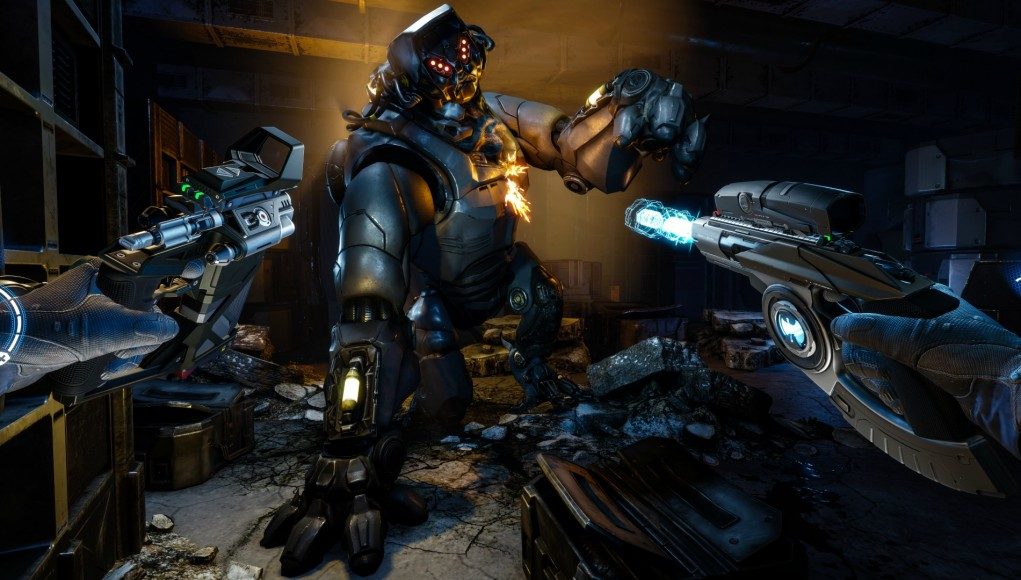Arktika.1 is the VR debut for 4A Games, the developers bind the Metro series of first person shooters. The title is built from the ground up for Oculus Touch, here’s 17 minutes of the Oculus Connect 3 demo where the title made it’s debut.
Oculus Connect felt like another milestone marking the maturity of content for virtual reality. VR is beginning to gain support from mainstream, triple-A developers and the games which have been in gestation are now beginning to filter out, with a step change in production design and polish, which the traditional games market takes for granted.
One such title revealed at the event was Arktika.1 from developers 4A Games. You may know them from the hugely popular (and technically excellent) Metro series of first person shooter games. Their Malta studio has been dedicated to building a new made-for-VR title which was unveiled for the first time at Oculus Connect 3. It’s a first person shooter designed around motion controls, specifically Oculus’ forthcoming Touch devices. It’s a first person shooter game set in an icy, futuristic wastelend:
Road to VR‘s Frank He went hands on with the game at the event, and had this to say about his experience:
The feel of the weapons as they shot, the strong haptics induced in the Touch controllers, and the quality of the sounds, were all satisfying, not to mention the look of the projectiles and the trails in the air left by them. All of this contributed to the high quality AAA feel of the game. Out of the assortment, I picked what looked like a revolver that shot a scattering of bullets made of pure energy, and a handgun that also scattered but with what seemed to be green projectiles leaving light distorting streaks in the air.
The gameplay seen here was shot ‘off screen’ so there’s no in game audio unfortunately, but it’s well worth a watch to get a handle on how 4A Games have approached gunplay and VR locomotion in the game, which promises a lengthy campaign mode to play through when it releases in 2017. Arktika.1 is exclusive to the Oculus Rift and Touch and is published by Oculus Studios.







